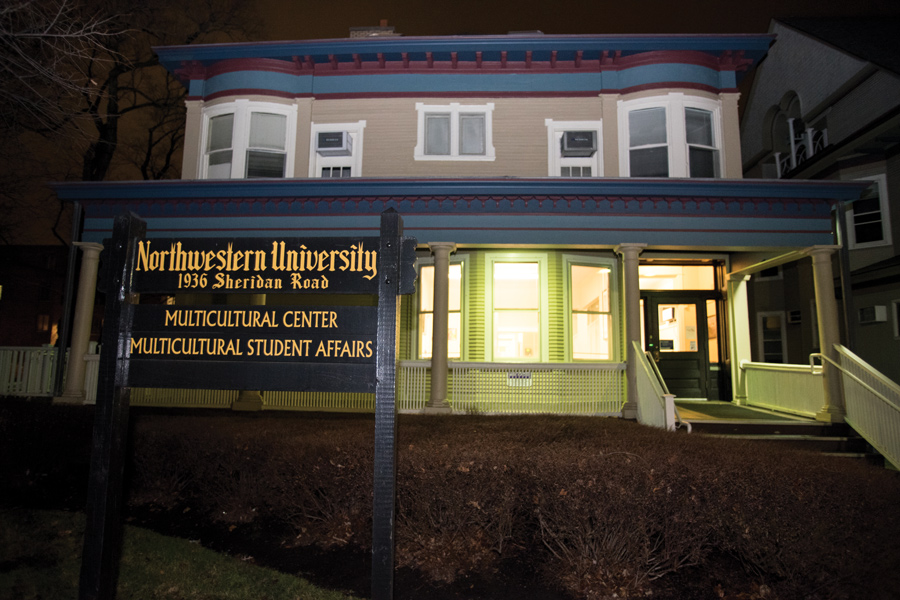MSA hosts Indigenous Reading Series, discusses colonialism, indigeneity
Daily file photo by Colin Boyle
Northwestern’s Multicultural Center. The event was hosted by Health Professions Advising and Multicultural Student Affairs.
March 5, 2021
After discussing texts on decolonization with each other, Multicultural Student Affairs Assistant Directors Aaron Golding and Christine Munteanu decided they wanted to recreate those same conversations with students.
In Fall 2020, they launched MSA Indigenuous Reading Series, a program that invites students to discuss three writings related to indigeneity each quarter.
“Part of what arose in our conversations internally was the need for building a shared understanding of some of these concepts,” Munteanu said. “Terms like decolonization or even indigeneity can be hard to define, so it was really helpful to both ground ourselves in texts that helped us make sense of those things and also provide a space for reflection.”
For Fall and Winter Quarter, the readings consisted primarily of articles and academic texts on settler colonialism and how Indigenous communities and individuals are pushing against these systems. The Spring Quarter series will move into fictional texts and begin discussing indigeneity outside of North America.
Each session, MSA facilitators lead discussions in breakout rooms of three to five students, and then the group comes back together to build upon the topics discussed in smaller groups.
“I think having a small group allows folks to feel safer in thinking out loud and makes more time for everyone to feel like their voice can be heard in the space,” Munteanu said.
Both undergraduate and graduate students from various fields of study attended the series.
Munteanu said having a variety of student perspectives allowed the discussion groups to explore different applications of the texts.
“Making some of these concepts concrete is the challenge and the opportunity of the group discussion, so having that variety really builds a rich discussion,” she said.
Golding said that he and Munteanu try to incorporate feedback from past participants when choosing featured texts. Based on feedback from previous events, they worked to include texts from local writers and scholars, including a piece from SESP Prof. Megan Bang for the last session.
Golding said the readings challenged the students to think differently about Indigenous knowledge systems, which are often left out of K-12 curriculum.
“Because these articles are all pushing against (current curricula),” Golding said. “They give us a lot to think about and that naturally brings out a lot of depth to the conversation.”
MSA advertises the series in their newsletter and the Paw Print Newsletter, drawing about 12-18 attendees to each session.
Weinberg freshman Olivia Masse said the Indigenous Reading Series, along with other MSA events, inspired her to consider minoring in Native American and Indigenous Studies.
“(The event) was particularly interesting to me because it sparked a really good discussion on challenging our stereotypes and using storytelling as a way to preserve culture and heritage,” Masse said.
Email: [email protected]
Related Stories:
— Reading your heritage: affinity book clubs on campus
— ASG, Payne-Kirchmeier talk Gender and Sexuality Resource Center relocation obstacles, timeline
— MSA launches virtual programming, copes with COVID-19 restrictions


